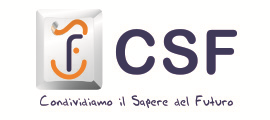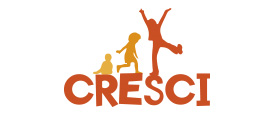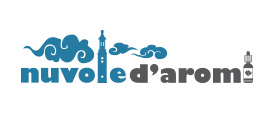Do you want to turn your novel into a screenplay?

Many writers harbor the dream of one day learning how to turn their book into a screenplay. The pinnacle of success many writers aspire to is becoming bestselling authors or, as you can imagine, seeing their characters come to life on the big screen.
With numerous screenwriters adapting books for the cinema, now is the ideal time to acquire this skill.
There are iconic books that have become films, such as The Lord of the Rings, Harry Potter, and Pride and Prejudice. However, there are also new and exciting adaptations.
Alice Walker's novel, The Color Purple, first published in 1982, won the Pulitzer Prize for Fiction in 1983 and the National Book Award for Fiction, later adapted into a film in 1985 directed by Steven Spielberg.
Today, it continues to be successful with a new film version released at the end of 2023. That being said, learning how to turn a book into a screenplay is an important skill, whether you wrote your book years ago or just published it.
Do you want to turn your novel into a screenplay?
Get ready. This will take some time.
Writing a screenplay is not the same as writing a novel. It requires a completely different set of skills. Fortunately, if you already have the talent, passion, and inclination for writing, you can acquire the necessary skills to write your film.
Let's begin.
Start by answering this question: Will your novel make a good film?
Let's be brutally honest here: not all stories translate well into a film, and it's not because the story is bad. On the contrary, some stories are better experienced through reading. A brilliant author can write in a way that keeps the reader hanging on every word.
In reality, most books are better than films simply because it's impossible to compete with the vivid imagination of a passionate reader.
But people also love movies. It's a billion-dollar industry, after all. And it's not just about money. Filmmaking is also a legitimate form of art, just like screenwriting. Even though your screenplay may take a different path than your novel, it can still be engaging for the right audience, and your message can still translate into powerful visuals.
Use the Right Tools
Let's talk about screenplay writing software.
Can you use Microsoft Word or Google Docs to write your script? Certainly.
Should you? Probably not.
Proper screenplay formatting is crucial, especially if you intend to pitch it around. Producers, directors, and actors all cringe at poorly formatted scripts. Correct formatting not only gives a more professional look to your work but also makes reading and reference easier.
That's why it's essential to invest in quality screenplay writing software. Specialized software automatically formats your script, freeing you from the hassle of adjusting tabs or setting indentations. The process becomes much smoother when you use the right tool.
Here are some screenplay writing software options to consider:
- Final Draft
- WriterDuet
- Fade In
- Scrivener
Learn the Mechanics of Screenwriting
No doubt, a good screenplay writing program can assist you with formatting, but possessing the basic skills of screenwriting is crucial. Directors and audiences alike crave a recognizable narrative flow in films. Hence, the popularity of the so-called "three-act structure." This framework divides the story into three major moments:
Act 1 - The Grand Beginning
Act 2 - The protagonist grapples with significant decisions
Act 3 - And then... the epilogue
Like a sumptuous cake divided into slices: the first and third acts each take a small slice (about 25%), while the second act savors the entire half! If you're keen to delve deeper into the three-act structure, stay tuned: there'll be an article on this topic coming soon!
And now, a golden piece of advice: read! Explore other screenplays to internalize the typical rhythm and flow of screenwriting language. Need a suggestion? Here's a collection of the best screenplays available in both Italian and English/American for reading and downloading. Ideally, with a good cup of coffee!
Revisit the Novel
Before diving into writing, give your novel another look. Even if you have a clear story, there might be details you've forgotten and want to highlight in the screenplay.
It's common for screenwriters to read the novel multiple times before deciding on the best approach to adapt it. This process can help you grasp the essence, tone, and rhythm of your story.
After reading, take the time to let the story settle within you so you can reflect on themes, tone, and plot. You may need to make some adjustments to the original story to make it understandable and compelling on the big screen.
Choose the Main Plot
Most novels are packed with information that can't be condensed into a two-hour film. What to do then? Focus on the heart of your story: envision the ten main scenes that outline the plot from beginning to end. These are the foundations upon which you'll build your narrative, without which the story simply wouldn't stand.
Once these key scenes are selected, it's time to breathe life into your plot. How will you guide your characters, especially the protagonist, through this journey from the first to the last scene? And the challenges your characters must face? Not just the tangible ones but also the internal conflicts: how will you portray them in your screenplay?
Remember that your screenplay consists of a series of scenes where characters should do something, not just silently contemplate a beautiful sunset. Every scene you write should push your characters toward the next key scene in your story. With a pinch of irony and some effective metaphors, your story will be a true adventure!
Keep an Eye on Timing
Don't forget that each page of your script roughly equals one minute on the big screen. Your mission is to produce enough content for a full two hours, around 120 pages. Some pages, especially those with a lot of dialogue, might only take half a minute. On the contrary, action-packed ones might require much more time. Remember, every minute counts!
Choose Characters Carefully
During the process of transforming your story into a screenplay, you might discover the need to merge some characters to make the narrative more effective. Don't hesitate to do so. I understand that you're attached to certain characters, and the idea of eliminating them might not sit well with you. However, it's crucial to understand that your screenplay is not a faithful reflection of your novel and may require a different approach. Feel free to grant yourself this freedom.
Regarding the characters you decide to keep, it's essential that each of them undergoes a personal evolution that unfolds during the narrative, and this evolution is completed by the end of the screenplay. If you find that there isn't enough space to develop a character's arc, it's a clear sign that you need to merge them with another or discard them altogether.
Kill Your Darlings.
Moreover, avoid overcrowding your screenplay with too many characters. This practice will be appreciated by your audience. Unlike readers, viewers don't have the luxury of dedicating much time to your characters, so a lengthy list of characters could confuse them.
Set Aside Narrative Exposition
Your story is in the first person, so it might seem logical to include narrative comments in your screenplay. Hold on a moment.
The use of voice-over is like an overused and overrated seasoning.
While voice-over can have its place in some films, many novice screenwriters overuse it to introduce "written" elements rather than "shown" ones. Remember, a film is a visual spectacle. You need to show what's happening rather than tell it. Otherwise, your audience will lose interest quickly.
However, don't completely forsake the narrator's or protagonist's point of view when writing your screenplay. Envision the scene through their eyes, as if they were directing it. What do they see, hear, and feel? Use visual elements, such as the surroundings, facial expressions, and vocal tones, to paint the entire picture.
Rewrite your screenplay
Well, none of us is immune to change, right? This holds true for authors, whether they're novelists or masters of screenwriting; revision is an inevitable step. Transitioning from a novel to a screenplay is an adventurous journey, full of changes and adjustments. It's like trimming down a well-nourished novel of over 200 pages into a sleek screenplay of 90-120 pages. It requires a fair amount of refining and reorganizing, all to achieve a more agile and impactful version.
Avoid Directing
Working on a screenplay doesn't equate to directing.
In your script, refrain from inserting camera direction like "the camera moves to the face." Directing is the realm of the director. Your task is to describe the scene. Show what you see, but don't delve into choices about framing; let the director handle that
Bring Your Film to Life
Dreaming of turning your book into a film but not sure where to start?
The world of filmmaking isn't exclusive to Hollywood.
If you believe your book has the potential to become a film, there's no need to wait for a call from a big Hollywood producer. There are artists with the passion and imagination to bring their own stories to life, transforming from writers to directors. Don't believe it?
Director Robert Rodriguez, in 1992, self-produced "El Mariachi," his first film, with $7,000, partly earned from his work as a "guinea pig for experiments." To save money, he covered all the technical roles needed for the film himself (screenwriting, directing, cinematography, editing, and sound recording). His film won the Audience Award for Best Dramatic Film at the Sundance Film Festival and was honored at festivals in Berlin, Munich, Edinburgh, Deauville, and Yūbari. It was the first American film to be translated into Spanish.
In essence, just as independent publishing is a reality, you too have the opportunity to conceive, produce, and distribute your film, both in theaters and online.
And now? Now it's your turn!
When you subscribe to the blog, we will send you an e-mail when there are new updates on the site so you wouldn't miss them.
By accepting you will be accessing a service provided by a third-party external to https://www.insightadv.it/


































































Comments